I’ve fled to my heart’s home: I’m at the beach, watching the coal ships define the horizon.
I dig down into the cooler sand and widen the moat. The next wave should fill it, and then my sandcastle will be complete.
I lick the salt from my lips, and suddenly realise that the alchemist is sitting next to me. She plants a small flag in the castle and smiles.
Troubled? she says. I listen if you wish to speak.
“More sad than troubled, I think.” I say. “I’ve realised that I must let go of an old belief about how the world works.”
And what is that?
“I believed that there was Truth, and when it stood revealed everyone would recognise it. And accept it.”
This is not so?
“No, I don’t think it is. I suspect that truth, like beauty, lives only in the eye of the beholder.”
Is this about the recent scandal?
“Yes. But it’s also about politics, that book of Byzantine history and the friend-of-a-friend incident. It’s happening a lot right now.”
What do all of these events have in common?
“Everyone believes that they know the truth. But often, his truth and her truth couldn’t possibly exist in the same universe.”
Many incompatible beliefs exist in the same universe. Why are you exasperated?
“Because I keep seeing both groups operate with the ironclad certainty of righteousness. And so every truth crusader ends up kind of shitty.”
The truth creates righteousness?
“I think it goes, “I know the truth, and the truth is right. Why would I do anything to become less right? So shut up.”"
Ah. So what do you believe in?
“I believe in science. And honesty.”
Why science?
“Science says, “Create a hypothesis. Test it. If it doesn’t hold up to testing, it’s incorrect. If it passes the tests, it’s correct. Until something changes.”"
Ah. The idea that nothing is eternally true. The sun may not rise from the east tomorrow.
“Yes. And if it doesn’t, then lots of people will have to change their hypotheses.”
Science, then, is to you a constant testing of reality, and adaptation to its change?
“Yes. And while people can deny fact, it requires a wilful amount of deceit to do so.”
How is fact different from truth?
“Hmm. Because… fact has no interpretation. Water boils at 100C, but it doesn’t tell you if that’s good or bad.”
So truth involves moral judgement, and fact does not?
“I guess, yeah. I mean, at least in the way that most people use it. People say, “The truth is, she’s a graffiti artist. The truth is, he’s a scumbag.” Although they do sometimes use “the fact of the matter”, too. Fuck.”
Ah, language. The word “truth” is often used both to describe the grounded scientific reality you mention, but it also can be used to describe moral imperatives.
“Yes. YES! And since people are really unclear about which way they’re using it, things get fucked up. They might say they’re describing objective reality, but their own standards for judging the world sneak in. And so their truth is completely subjective.”
But they are as certain of it as if it was entirely objective.
“Exactly. And so people say incorrect or semi-correct statements with all the force of certainty. And then someone else does it with their own “truth”. And then shit gets ugly.”
And thus, science.
“Yes. Science is supposed to be completely objective.”
Supposed to be?
“People are still… people. But it’s a self-correcting system.”
Ah. And what about honesty?
“Well, you see, science is a way for me to objectively assess reality. Honesty is about judging my subjective reality.”
Judging. So this is a moral stance?
“Yes. It’s me judging myself and whether I’ve acted in line with my own standards.”
And what are your standards of internal truth?
“I don’t know if I’ve ever codified them before. Hold on.” I go fetch some driftwood and draw on the sand, scratch out, draw again. “There.”
Hmm, I see. I especially like the third one. Are you planning to tell your readers about them?
“I don’t know if there’s much point. These are entirely subjective standards, and there’s no way for people who aren’t in my head to know whether I’m meeting most of them or not. I suspect it would just be flattering my own ego to tell them exactly what they are.”
That violates rule four, but is perfectly in line with rule five. I see.
“I could always invoke seven.”
That seems an adequate solution. Also, you no longer sound as sad.
“Well, I am. People are so cruel to each other, and it hurts to watch. And to be part of.”
But rule seven.
“I kinda hate rule seven at times.”
I understand. But the world is what it is, and we can at the deepest level change only ourselves.
“That’s depressing news from an alchemist.”
Them’s the breaks, kid.
“No sweet note to end this on?”
I’m afraid not.
So together the alchemist and I watch the ships define the horizon, as the salt on our cheeks tastes like tears.
The moral of the story
Actually, there are two points I want to make here.
We all need our own standards for truth, reality and how we behave as public people in a world where almost everything is documented.
When I was young, I lied pretty regularly. Mostly for self-aggrandisement, sometimes in order to avoid pain.
I am so damn glad I outgrew that habit before the internet took off.
The internet is a giant accountability machine.
It remembers everything.
We have all seen it happen – the employee who forgets that their boss is a Facebook friend (“Yeah, skydiving! So glad I lied to my boss about having the flu!”), the politician caught contradicting themselves, the whistleblower email…
This is the age of Wikileaks.
This is the age of citizen journalism.
This is an age where Mark Twain’s quote “If you tell the truth, you don’t have to remember anything.” makes even more sense. (Although maybe it should be “If you tell the truth, your Twitter won’t contradict your Google+.”)
You must decide in advance what you will talk about, what you will keep private, what levels of disclosure you’re okay with. Things like:
- Is lying by omission acceptable?
- Will you mention your kids by codename, real name, or never at all?
- How much spin and varnish do you feel comfortable with?
- Do you delete comments that disagree with you?
- Do you actively mention people who disagree with you?
- If you’re experiencing the problem you solve, do you tell people?
Decide now, before the pressure is on. We are outrageously bad at making moral decisions when we’re scared, hungry or seeking approval, unless we already made the decision in advance. (Not that we get it right all the time then, either. But the odds do improve dramatically.)
If you don’t create your rules in advance, then expect scandal. It will come.
*dramatic foreshadowing music*
Also, we have to be very clear on which of those standards apply only to ourselves.
When we say, “The truth is…” often we mean, “What I think the truth is…”
Your truth is valid. But it isn’t necessarily universal.
It’s irritating as hell to constantly caveat with, “Of course, this is just my opinion…” but it matters. Especially online, where your words stand alone, without tone, body language or sometimes even the context of the rest of your statement.
The more you consciously separate fact from your truth, the better. There really is a qualitative difference between, “Bill took three weeks to respond to my email. I regard that as atrocious customer service.” and, “Bill took three weeks to respond to my email. His customer service is atrocious.”
One gets refunds. The other starts flame-wars. (“Well, Bill replied to my email the same day and he was super-helpful. You’re wrong!”)
I had 130-ish comments to my last article about a seriously contentious topic, but that conversation stayed – mostly – respectful and on-topic. And that was largely due to conscious outlining of assumptions and separating fact from… everything else.
This isn’t the end, I think.
There are some more thoughts I’m going to need to tease out about how to mesh the definitive statements (“This is the best way to accomplish [x]“) that you need (?) to make as an authority in your field, with the nuance and honesty that respects your audience.
We will also see the continued fallout of this scandal, and the next one, and the one after that. I suspect that this is to some extent a generational issue, one that affects those that didn’t grow up with their every word being cached online forever.
Oh, and by the way… Rule Seven of my internal standards of honesty is this: “Assume that other people are smart enough to make their own decisions.”
Thus: if it would be valuable for you to know my other rules, feel free to ask.
I’d like to hear your thoughts, whether you’re caught up in the current scandal, or a different one, or you still bears the scars of one in the past. Is complete disclosure the only way to go? How do you separate truth from fact… and do you need to?
In the meantime, if you’d like to observe how I handle disclosure and honesty, you need to be subscribed to the new and improved Mo’Cash, Mo’Joy. All the truthiness that’s fit to print, ladies and gentlemen.
![]() photo credit:
photo credit:

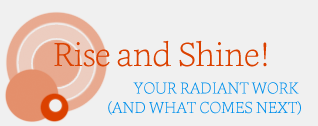
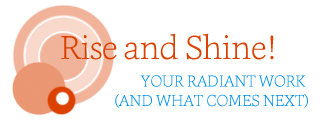
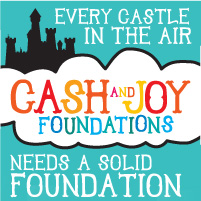


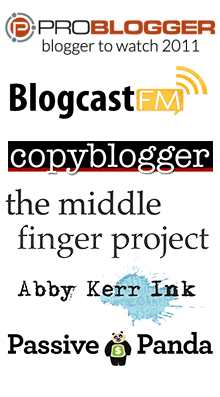
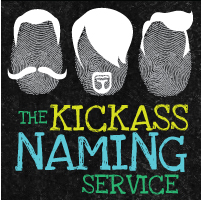
34 Comments